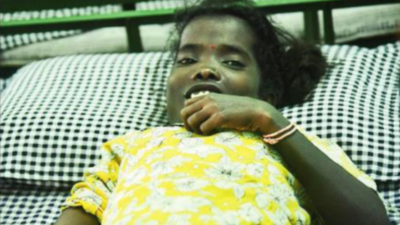For almost a decade-and-a-half, Kishore Meshram has been undertaking a gruelling 85km journey from his village in Narkhed taluk to Nagpur every month, accompanying his son Mayuresh — now 14, a thalassaemia patient — for blood transfusions. Meshram and Mayuresh aren’t alone. Across Central India, several others need to travel long distances to reach the Thalassaemia and Sickle Cell Centre (TSCC) at Jaripatka in Nagpur, Maharashtra, with the medical facility serving as a lifeline for impoverished tribals in a 500km radius.
Without consistent transfusions, these patients have to endure excruciating agony or even face death. ‘Inadequate awareness’ Patients also need clinical intervention during vaso-occlusive crisis (when microcirculation is obstructed by sickled RBCs). As countless patients suffer in silence, the number of those afflicted with these genetic disorders continues to mount.
Currently, there are more than 1.5 lakh thalassaemia and 14 lakh sickle cell anaemia patients nationwide. “Inadequate awareness about inherited blood disorders is the sole reason why the burden of thalassaemia major and sickle cell anaemia continues to surge despite being entirely preventable,” said Dr Vinky Rughwani, di rector, TSCC, which provides transfusions — otherwise unaffordable for the hundreds who come from faraway hamlets of Madhya Pradesh and Chhattisgarh — for free.
Established in 2004, TSCC has conducted more than 66,600 complimentary transfusions for 1,500 registe.


















